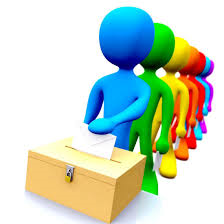“When USA sneezes, the world catches a cold.” That famous quote which has been repeated over the years is still relevant to this day. When ascertaining what the greatest country in the world is, many different factors have to be taken into account. While there is no definite answer to this question, there is no doubting how powerful USA are, and that they are great.
While there can be no doubting the fact USA is a global super-power, it appears in recent times that the country has been in somewhat of a decline. Broadcast network HBO’s series “The Newsroom” managed to make the real-life news thanks to a scene where a character tells a young woman through the use of statistics and well-constructed arguments, that despite her beliefs, that USA isn’t actually the greatest country in the world.
The conclusion from the scene sees the character say “I believe in American exceptionalism, just as I suspect the Brits believe in British exceptionalism and the Greeks believe in Greek exceptionalism.” The people of USA, at least from a British perspective, are renowned for being hugely patriotic and proud of their nation. But it appears that perhaps the people of USA are starting to think otherwise, and aren’t as patriotic as they appear.
If you think about what “great” entails, freedom and democracy would be at the forefront of any list. The idea of the “American Dream” truly is great, and is thought of fondly by British people as a fresh start. The famous Statue of Liberty also has connotations of freedom, while USA has a very successful democracy, allowing everyone within the country to have a voice. Finally, USA appears to be a very fair country, where the citizens are free to live life in their own way.
Criticisms of USA, and those who would oppose that USA is the greatest country, have many statistics and theories to provide substance to their argument. The arrival of Obamacare could be attributed to many alarming statistics based on health, while the lifestyle, healthcare and education system as well have all been questioned on numerous occasions.
Back to the pro-USA argument, it could then be argued as to why successful education countries such as China send an influx of students to USA for their education. Some of the greatest and most innovatory businesses in history, such as Microsoft and Amazon, have been founded by American’s – and who can question the impact Google has had – again, an American creation, as well as the social media giants of Facebook and Twitter.
On balance, it is hard to question the power USA has, and the positive impact the country and its people have had on society, and overall, the world. Although perhaps there is not as much patriotic behaviour as there once was, the people of America seemingly have a lot to be proud of. Overall, it appears, that there could well be a very strong argument to suggest that USA is indeed the greatest country – without doubt they have had a hugely influential impact on the lives we all lead.
/MF/
(‘054’)
This post was written as Millicent Faith approaches 1000 views from USA, thanks for the support, and all the best.




